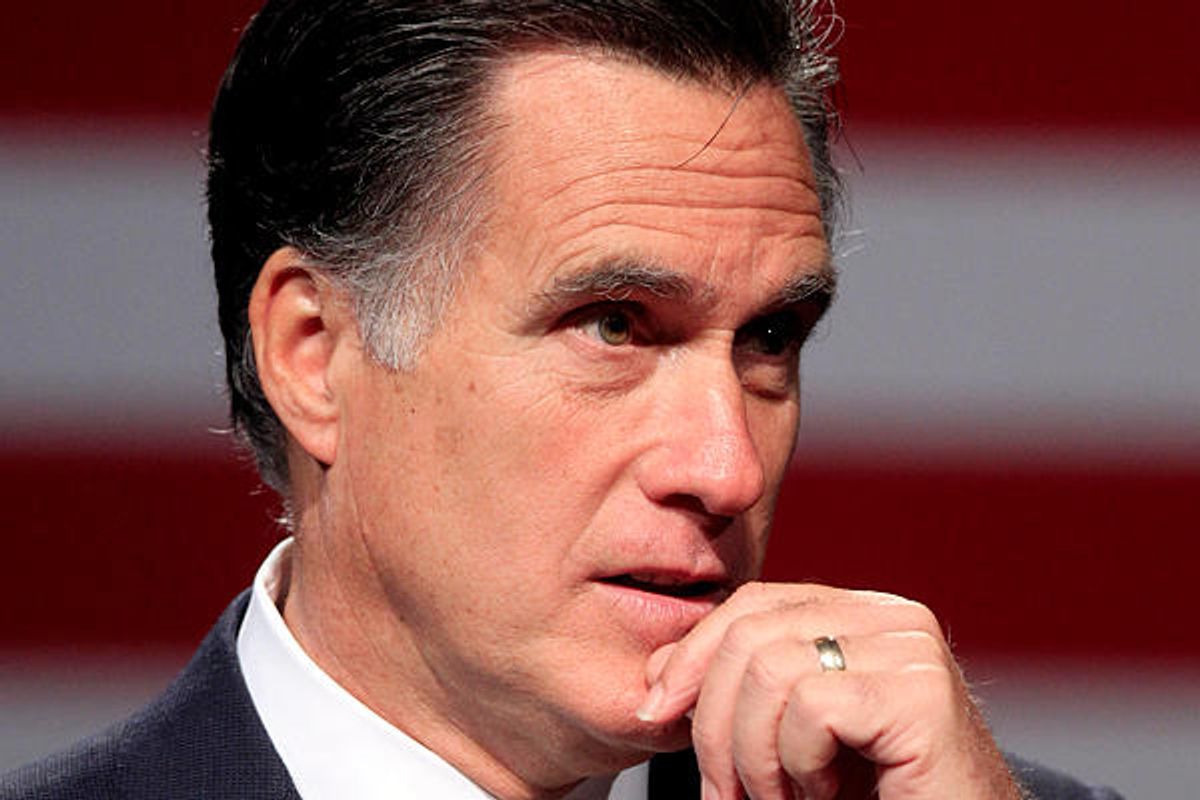The timing seemed a little odd when it was announced last month that Mitt Romney would be delivering an address at Liberty University’s commencement, which will take place this weekend. It was the kind of appearance you might have expected Romney to make in the spring of 2011, when he was just setting out to woo Republican primary voters, but not in the spring of 2012, after he’d secured the nomination and was setting out to win over general election swing voters.
That he felt compelled to do this speaks to the lack of confidence his campaign continues to feel about Romney’s support among a major chunk of the GOP base: white evangelical Christians, who continued to vote against him in primaries even as his nomination became inevitable.
There are two main theories about why this resistance exists. The first has to do with Romney’s religion, and the widely held conviction among evangelicals that Mormonism is, as one conservative Christian leader memorably put it, a “theological cult.” The other involves the premium that evangelical voters tend to place on cultural issues, and Romney’s suspect credentials on them (from back in his Massachusetts days, when he was avowedly pro-choice and pitched himself as a stronger advocate for gay rights than Ted Kennedy).
Whatever the exact explanation, Romney and his team clearly do not feel that they can take the support and – maybe more important – the enthusiasm of evangelicals for granted the way most previous Republican nominees could. This could severely complicate Romney’s efforts to separate himself from what to general election swing voters are some of the most unappealing aspects of the modern Republican Party. Any position he takes or utterance he makes that puts him at odds with the Christian right threatens to prompt a loud uproar from evangelical leaders. How much slack (if any) they’re willing to cut Romney in the name of general election expediency is unclear at this point.
This is why the timing of Romney’s Liberty speech is even more awkward now than when it was initially announced. No one knew back then that the week leading up to it would feature an endorsement of gay marriage from President Obama. In the run-up to Obama’s announcement, talk focused on the political risks that would be involved for him. But in the aftermath, it’s becoming clear that Romney and other top Republicans see just as much risk for themselves.
Public opinion is moving fast on gay marriage, and already a clear majority of independent voters support it, which explains why Romney has shown little interest this week in playing up his opposition and tried to change the subject when asked about it. (House Speaker John Boehner has been doing the same thing.) And even when Romney did discuss the issue on Thursday, he made sure to note his support for gay adoption, something he never would have mentioned during the primaries, given that evangelical leaders do not share this view.
At Liberty, Romney will be in something of a bind. A more confident nominee might see the venue as ideal for a Sister Souljah moment, defiantly distancing himself from the ardent culture war politics that Liberty embodies. But this would entail serious risks – an intraparty civil war? – that Romney has consistently shown he’s not comfortable taking. The opposite strategy – pandering to a crowd that has spent the past week hearing about a supposed assault on traditional marriage – is just as problematic, since it would reinforce Romney’s problems with swing voters.
That leaves Option C, which is for Romney to mostly ignore the elephant in the room and instead speak broadly about values and his own family life, while weaving in a few shots at Obama over the economy. Based on the excerpts that have already been released, this is what Romney plans to do. At best, this will allow him to get through Saturday without offending skeptical evangelicals or alarming swing voters. At worst, it will reinforce two real general election liabilities for Romney: his party’s alliance with evangelical conservatives, and the degree to which he lives in fear of offending them.



Shares